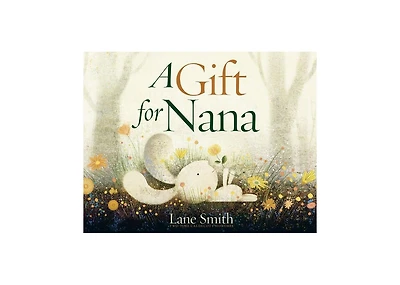Home
Nana
Barnes and Noble
Loading Inventory...
Nana in Bloomington, MN
Current price: $44.00


Nana in Bloomington, MN
Current price: $44.00
Loading Inventory...
Size: Audiobook
'She was the golden beast, an unconscious force, the very scent of her could bring the world to ruin.'
Nana, daughter of a drunk and a laundress, is the Helen of Troy of Paris. A sexually magnetic high-class prostitute and actress, she becomes a celebrity, rapidly conquering society, ruining all men who fall under her spell especially Count Muffat, Chamberlain to the Empress. Nana herself meets a terrible fate, consumed by her own dissipation and extravagance, just as the disastrous war with Prussia is declared.
Nana is the ninth instalment in the twenty volume Rougon-Macquart series. The novel opens in 1867, the year of the World Fair, when Paris, thronged by a cosmopolitan elite, was
la Ville Lumiere
, the glittering setting-and object-of Zola's scathing denunciation of society's hypocrisy and moral corruption. Nana comes to symbolize the Second Empire regime itself in all its excesses; but in the final chapters, the narrator seems to suggest that the coming disaster is not so much a result of the corruption of the Empire, as of rampant female sexuality.
Nana, daughter of a drunk and a laundress, is the Helen of Troy of Paris. A sexually magnetic high-class prostitute and actress, she becomes a celebrity, rapidly conquering society, ruining all men who fall under her spell especially Count Muffat, Chamberlain to the Empress. Nana herself meets a terrible fate, consumed by her own dissipation and extravagance, just as the disastrous war with Prussia is declared.
Nana is the ninth instalment in the twenty volume Rougon-Macquart series. The novel opens in 1867, the year of the World Fair, when Paris, thronged by a cosmopolitan elite, was
la Ville Lumiere
, the glittering setting-and object-of Zola's scathing denunciation of society's hypocrisy and moral corruption. Nana comes to symbolize the Second Empire regime itself in all its excesses; but in the final chapters, the narrator seems to suggest that the coming disaster is not so much a result of the corruption of the Empire, as of rampant female sexuality.
'She was the golden beast, an unconscious force, the very scent of her could bring the world to ruin.'
Nana, daughter of a drunk and a laundress, is the Helen of Troy of Paris. A sexually magnetic high-class prostitute and actress, she becomes a celebrity, rapidly conquering society, ruining all men who fall under her spell especially Count Muffat, Chamberlain to the Empress. Nana herself meets a terrible fate, consumed by her own dissipation and extravagance, just as the disastrous war with Prussia is declared.
Nana is the ninth instalment in the twenty volume Rougon-Macquart series. The novel opens in 1867, the year of the World Fair, when Paris, thronged by a cosmopolitan elite, was
la Ville Lumiere
, the glittering setting-and object-of Zola's scathing denunciation of society's hypocrisy and moral corruption. Nana comes to symbolize the Second Empire regime itself in all its excesses; but in the final chapters, the narrator seems to suggest that the coming disaster is not so much a result of the corruption of the Empire, as of rampant female sexuality.
Nana, daughter of a drunk and a laundress, is the Helen of Troy of Paris. A sexually magnetic high-class prostitute and actress, she becomes a celebrity, rapidly conquering society, ruining all men who fall under her spell especially Count Muffat, Chamberlain to the Empress. Nana herself meets a terrible fate, consumed by her own dissipation and extravagance, just as the disastrous war with Prussia is declared.
Nana is the ninth instalment in the twenty volume Rougon-Macquart series. The novel opens in 1867, the year of the World Fair, when Paris, thronged by a cosmopolitan elite, was
la Ville Lumiere
, the glittering setting-and object-of Zola's scathing denunciation of society's hypocrisy and moral corruption. Nana comes to symbolize the Second Empire regime itself in all its excesses; but in the final chapters, the narrator seems to suggest that the coming disaster is not so much a result of the corruption of the Empire, as of rampant female sexuality.

















